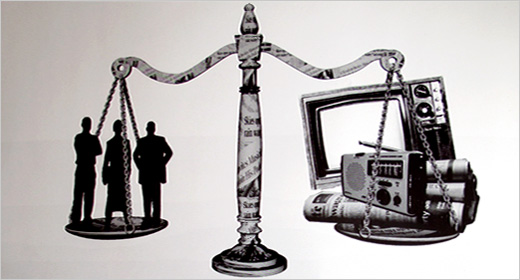- These vices have detrimental effects on families, which are the basic unit of society at the national and international levels.
- It also contributes to increasing number of psychological effects as a result of fear, anxiety and insecurity among targeted groups.
Increased access to technological devices such as smartphones, laptops, computers and internet services across the country has led to increased cases of misinformation, disinformation and hate speech in the country.
Various stakeholders from governmental and nongovernmental organizations have decided to create awareness of the importance of shunning away from these vices and promoting strategies that combat and address them. With just a click of a button, misinformation, disinformation, and hate speech can be spread to millions of people across various platforms.
Hate speech is any form of communication that castigates or discriminates against a person or group based on race, religion, ethnicity, disability and gender, while misinformation is inaccurate or false information regardless of intent to deceive; on the other hand, disinformation is intentionally spreading information with aim of deceiving manipulating and causing harm.
These vices have detrimental effects on families, which are the basic unit of society at the national and international levels.
It amplifies societal division and contributes to conflicts, including political instability such as the 2007-08 post-election violence, the Rwanda genocide, interethnic fights in Kenya, an unfavorable business environment which undermine consumer confidence that led to financial losses and underdevelopments, erosion of trust to institutions such as government and media may result from these vices hence crippling of service delivery.
Read More
It also contributes to increasing number of psychological effects as a result of fear, anxiety and insecurity among targeted groups.
Strategic communication officer – Constitution and Reform Education Consortium (CRECO) Dancun Maigua, speaking during the International Day to Combat Hate Speech, advocated for self-regulation as a way of combating hate speech, misinformation and disinformation due to the free flow of information, which he termed as infodemic the overabundance of information, accurate and inaccurate circulating rapidly and widely.
He also added access to proper information is also a way of fighting these vices, as lack of information is a breeding ground for misinformation and disinformation, he also called for the government to make sure that the law is implemented regardless of the person involved or position they hold in our society and to provide funds for initiatives that deals with civic education for digital literacy.
He additionally emphasized that the level of accountability can be achieved through self-regulation, as social media platforms have failed to flag disinformation, disinformation and hate speech in local languages.
They (CRECO) also have initiatives as #VijanaTuchanuke is one of initiatives by this organization that call upon youths to wise up and rise to the occasion that power is in their hand and know these vices are not funny, affecting others and policy-making.
Youth are the largest population in our country, thus constituting the largest consumers and disseminators of these vices. They use their various online accounts to conduct civic education and come up with ways of educating each other on the importance of managing and using these platforms well for the betterment of our country and as a source of income to them.
We as youths should also leverage artificial intelligence to fact-check and ensure the spread of positive and accurate information in our country by ensuring respectful and informed discussions on social media and traditional media and modelling constructive communication. This will result in a positive environment in our society and challenge hateful rhetoric.












